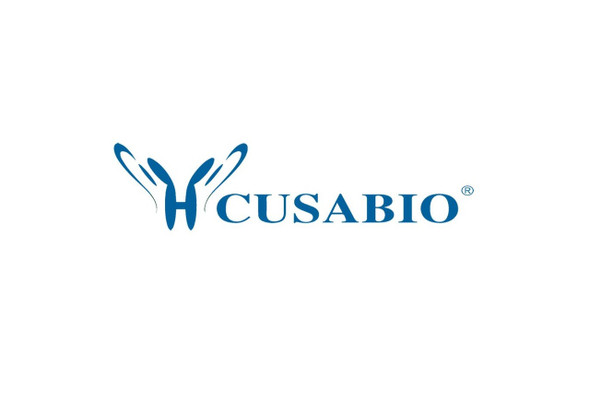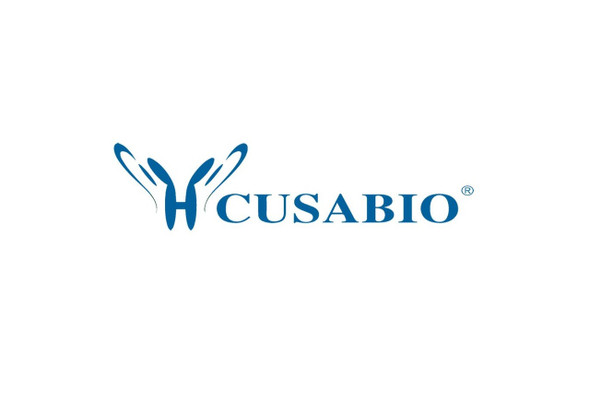Cusabio Human Recombinants
Recombinant Human Endogenous retrovirus group K member 6 Env polyprotein (ERVK-6), partial | CSB-YP724336HU
- SKU:
- CSB-YP724336HU
- Availability:
- 25 - 35 Working Days
Description
Recombinant Human Endogenous retrovirus group K member 6 Env polyprotein (ERVK-6), partial | CSB-YP724336HU | Cusabio
Alternative Name(s): EnvK2 protein Envelope polyprotein HERV-K(C7) envelope protein HERV-K(HML-2.HOM) envelope protein HERV-K108 envelope protein HERV-K_7p22.1 provirus ancestral Env polyprotein
Gene Names: ERVK-6
Research Areas: Others
Organism: Homo sapiens (Human)
AA Sequence: LPMPAGAAAANYTYWAYVPFPPLIRAVTWMDNPTEVYVNDSVWVPGPIDDRCPAKPEEEGMMINISIGYHYPPICLGRAPGCLMPAVQNWLVEVPTVSPICRFTYHMVSGMSLRPRVNYLQDFSYQRSLKFRPKGKPCPKEIPKESKNTEVLVWEECVANSAVILQNNEFGTIIDWAPRGQFYHNCSGQTQSCPSAQVSPAVDSDLTESLDKHKHKKLQSFYPWEWGEKGISTPRPKIVSPVSGPEHPELWRLTVASHHIRIWSGNQTLETRDRKPFYTIDLNSSLTVPLQSCVKPPYMLVVGNIVIKPDSQTITCENCRLLTCIDSTFNWQHRILLVRAREGVWIPVSMDRPWEASPSVHILTEVLKGVLNRSKRFIFTLIAVIMGLIAVTATAAVAGVALHSSVQSVNFVNDWQKNSTRLWNSQSSIDQKLANQINDLRQTVIWMGDRLMSLEHRFQLQCDWNTSDFCITPQIYNESEHHWDMVRRHLQGREDNLTLDISKLKEQIFEASKAHLNLVPGTEAIAGVADGLANLNPVTWVKT
Source: Yeast
Tag Info: N-terminal 6xHis-tagged
Expression Region: 90-632aa
Sequence Info: Partial
MW: 63.5 kDa
Purity: Greater than 90% as determined by SDS-PAGE.
Relevance: Retroviral envelope proteins mediate receptor recognition and membrane fusion during early infection. Endogenous envelope proteins may have kept, lost or modified their original function during evolution. This endogenous envelope protein has lost its original fusogenic properties. SU mediates receptor recognition. TM anchors the envelope heterodimer to the viral membrane through one transmembrane domain. The other hydrophobic domain, called fusion peptide, mediates fusion of the viral membrane with the target cell membrane
Reference: "Identification of a Rev-related protein by analysis of spliced transcripts of the human endogenous retroviruses HTDV/HERV-K." Loewer R., Toenjes R.R., Korbmacher C., Kurth R., Loewer J. J. Virol. 69:141-149(1995)
Storage: The shelf life is related to many factors, storage state, buffer ingredients, storage temperature and the stability of the protein itself. Generally, the shelf life of liquid form is 6 months at -20?/-80?. The shelf life of lyophilized form is 12 months at -20?/-80?.
Notes: Repeated freezing and thawing is not recommended. Store working aliquots at 4? for up to one week.
Function: Retroviral envelope proteins mediate receptor recognition and membrane fusion during early infection. Endogenous envelope proteins may have kept, lost or modified their original function during evolution. This endogenous envelope protein has lost its original fusogenic properties.
Involvement in disease:
Subcellular Location: Transmembrane protein: Cell membrane, Single-pass type I membrane protein, SUBCELLULAR LOCATION: Surface protein: Cell membrane, Peripheral membrane protein
Protein Families: Beta type-B retroviral envelope protein family, HERV class-II K(HML-2) env subfamily
Tissue Specificity: Expressed in testis, and peripheral blood lymphocytes.
Paythway:
Form: Liquid or Lyophilized powder
Buffer: If the delivery form is liquid, the default storage buffer is Tris/PBS-based buffer, 5%-50% glycerol. If the delivery form is lyophilized powder, the buffer before lyophilization is Tris/PBS-based buffer, 6% Trehalose, pH 8.0.
Reconstitution: We recommend that this vial be briefly centrifuged prior to opening to bring the contents to the bottom. Please reconstitute protein in deionized sterile water to a concentration of 0.1-1.0 mg/mL.We recommend to add 5-50% of glycerol (final concentration) and aliquot for long-term storage at -20?/-80?. Our default final concentration of glycerol is 50%. Customers could use it as reference.
Uniprot ID: Q69384
HGNC Database Link: HGNC
UniGene Database Link: N/A
KEGG Database Link: N/A
STRING Database Link: N/A
OMIM Database Link: OMIM









